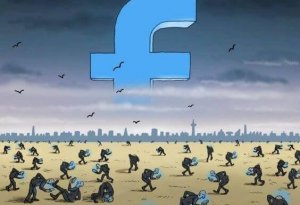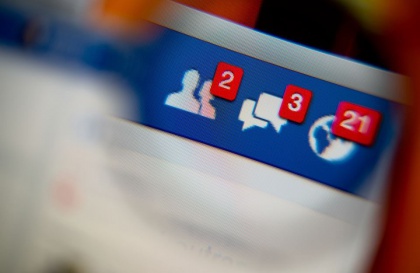The Reflection of Our Lives on Social Media

When we see all of our contacts’ status updates and photos on social media, we may feel like our life is boring and has nothing to offer. Then, we do everything we can to resemble the rest and upload thousands of photos to tell our stories.
But are the lives of others really as wonderful as they seem on social media? It is really worth having a “crazy,” visible social life?

For example, couples who constantly “remind” their acquaintances that they’re in love and can’t live without each other are actually insecure and jealous. They feel the need to shout out their love to “mimic” perfection or invent a story that’s no longer the reality of their own life.
Why does everyone seem to have a better social life than I do?
Publications of happy, enamored couples who are hiding marital crises. People taking selfies around the world. Self-help and personal improvement phrases with far too many exceptions…
Unfortunately, when we see these messages, we experience a wave of envy because we believe that others are more fun, have fantastic lives, have found true love or experience unique feelings. However, is all that glitters really gold?
Spending hours and hours in front of social networks usually doesn’t help us if we’re in a melancholy state. It’s especially harmful when we compare ourselves with others. If we feel that the world owes us something – which isn’t true – our perception that others are doing better than us will only increase. Thus, browsing others’ profiles just increases your feeling of being a victim.

Social media doesn’t truly portray the lives of others
Do you feel like it’s impossible to stop connecting to the platform that supposedly reports the latest news from those around you every day? According to a study from the Danish Happiness Research institute, using Facebook this way always makes us feel unhappy. In this study, a group of participants didn’t open their profiles for a week and admitted to feeling less stressed and more focused on their work or studies.
Those who don’t use Facebook or didn’t have profiles took advantage of the day in other ways. They have more time to rest, exercise, finish homework, prepare dinner or clean the house. As if that weren’t enough, being outside of a social network encourages us to talk to those around us and to see our loved ones and friends more often in person.
The result of this study gives us something to think about.
We’re constantly reading good news and wonderful things on other people’s walls, and that leads us to compare and become depressed. The words or images aren’t always what they seem to be, since the world of social media is based on showing others the best version of ourselves, a distorted image of who we truly are.”
Facebook happiness wears a mask
This phrase should be used as a mantra whenever you feel depressed after seeing nice messages and publications on social networks. Why can’t we just recognize that the happiness there isn’t true happiness?
It’s very simple: it’s because it’s a selected image. In many cases, it’s even manipulated and separated from its surroundings. It’s not a random photo of an ordinary moment. It’s simply a moment that the person who published it likes and wants to share.

On the other hand, remember that whoever is wasting time taking the perfect photo in the perfect place is forgetting to truly enjoy that moment. That person has left the stage and becomes a spectator in a scene that’s simply a mere reflection of his or her life….a carefully selected reflection.
What happens on Facebook, Twitter or Instagram is separate from the real and authentic. It’s more an exercise in publicity and the need to define ourselves in a certain way.
If your social life doesn’t seem to be the same as everyone else’s, congratulations! You don’t need to show thousands of photos of a Saturday night party or a dream vacation to know that you’ve had a great time. Remember that those moments have actually existed, even if they don’t have a window to see into them from the outside.
When we see all of our contacts’ status updates and photos on social media, we may feel like our life is boring and has nothing to offer. Then, we do everything we can to resemble the rest and upload thousands of photos to tell our stories.
But are the lives of others really as wonderful as they seem on social media? It is really worth having a “crazy,” visible social life?

For example, couples who constantly “remind” their acquaintances that they’re in love and can’t live without each other are actually insecure and jealous. They feel the need to shout out their love to “mimic” perfection or invent a story that’s no longer the reality of their own life.
Why does everyone seem to have a better social life than I do?
Publications of happy, enamored couples who are hiding marital crises. People taking selfies around the world. Self-help and personal improvement phrases with far too many exceptions…
Unfortunately, when we see these messages, we experience a wave of envy because we believe that others are more fun, have fantastic lives, have found true love or experience unique feelings. However, is all that glitters really gold?
Spending hours and hours in front of social networks usually doesn’t help us if we’re in a melancholy state. It’s especially harmful when we compare ourselves with others. If we feel that the world owes us something – which isn’t true – our perception that others are doing better than us will only increase. Thus, browsing others’ profiles just increases your feeling of being a victim.

Social media doesn’t truly portray the lives of others
Do you feel like it’s impossible to stop connecting to the platform that supposedly reports the latest news from those around you every day? According to a study from the Danish Happiness Research institute, using Facebook this way always makes us feel unhappy. In this study, a group of participants didn’t open their profiles for a week and admitted to feeling less stressed and more focused on their work or studies.
Those who don’t use Facebook or didn’t have profiles took advantage of the day in other ways. They have more time to rest, exercise, finish homework, prepare dinner or clean the house. As if that weren’t enough, being outside of a social network encourages us to talk to those around us and to see our loved ones and friends more often in person.
The result of this study gives us something to think about.
We’re constantly reading good news and wonderful things on other people’s walls, and that leads us to compare and become depressed. The words or images aren’t always what they seem to be, since the world of social media is based on showing others the best version of ourselves, a distorted image of who we truly are.”
Facebook happiness wears a mask
This phrase should be used as a mantra whenever you feel depressed after seeing nice messages and publications on social networks. Why can’t we just recognize that the happiness there isn’t true happiness?
It’s very simple: it’s because it’s a selected image. In many cases, it’s even manipulated and separated from its surroundings. It’s not a random photo of an ordinary moment. It’s simply a moment that the person who published it likes and wants to share.

On the other hand, remember that whoever is wasting time taking the perfect photo in the perfect place is forgetting to truly enjoy that moment. That person has left the stage and becomes a spectator in a scene that’s simply a mere reflection of his or her life….a carefully selected reflection.
What happens on Facebook, Twitter or Instagram is separate from the real and authentic. It’s more an exercise in publicity and the need to define ourselves in a certain way.
If your social life doesn’t seem to be the same as everyone else’s, congratulations! You don’t need to show thousands of photos of a Saturday night party or a dream vacation to know that you’ve had a great time. Remember that those moments have actually existed, even if they don’t have a window to see into them from the outside.
This text is provided for informational purposes only and does not replace consultation with a professional. If in doubt, consult your specialist.







